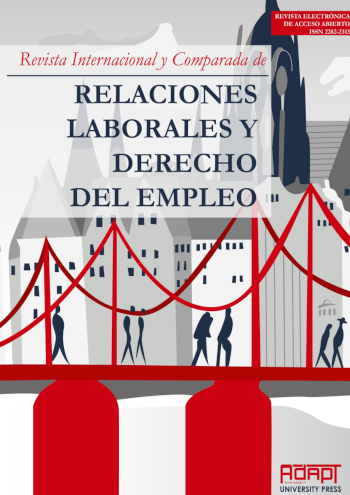Abstract
El nuevo Reglamento (UE) 2016/679 relativo a la protección de las personas físicas respecto al tratamiento y circulación de datos personales regula la “nueva” figura del delegado de protección de datos (DPO por sus siglas en inglés). Aunque esta figura no es novedosa porque ya se instauró en el Reglamento 45/2001, la diferencia radica en que se instaura tanto en el ámbito del sector público como privado, exigiendo que el DPO tenga unos conocimientos especializados de la legislación y la práctica en materia de protección de datos, y que esté capacitado para ejecutar los cometidos del Reglamento. El nuevo reglamento tiene efectos directos y obliga a todos los Estados miembros a interpretar de forma similar la regulación en torno a la designación, posición y funciones del delegado de protección de datos, y exige que el DPO se designe atendiendo a sus cualidades profesionales y conocimientos especializados en la Industria 4.0. En este trabajo abordaremos además cuestiones laborales relacionadas con las funciones y competencias del delegado de protección de datos cuando se trate de una persona física: la dependencia jurídico-económica (en el caso de ser un trabajador interno) y la dependencia económica con el responsable del tratamiento (en el caso de ser DPO externo).
The new Regulation (EU) 2016/679 on the protection of individuals regarding the processing and circulation of personal data regulates the “new” figure of the data protection officer (DPO). Although this job position is not new because it was already established in Regulation 45/2001, the difference now is that it affects both the public and private sector, requiring that the DPO has specialized knowledge of the legislation and practice in data protection matter, and is able to perform the tasks described in the Regulation. The new regulation has direct effects and obliges all Member States to interpret in a similar way matters regarding the designation, position and functions of the data protection officer, and requires that the DPO be designated according to their professional qualities and specialized knowledge in Industry 4.0. In this paper we will also address labor issues related to the functions and powers of the data protection officer when dealing with a natural person: the legal-economic dependence (in the case of an internal worker) and the economic dependence with the person responsible for the treatment (in the case of an external DPO).

